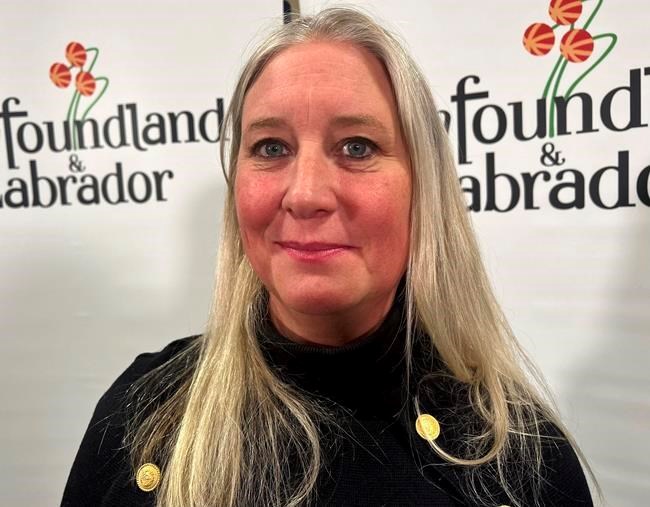ST. JOHN'S, N.L. — Newfoundland and Labrador has become the third Canadian province to enact a law allowing those at risk of domestic violence to get information from police about their partner's history, officials announced Thursday.
Known as Clare's Law, the new rules allow people to seek the information from police, and they allow police to proactively disclose those details to people judged to be at risk.
Malin Enstrom, executive director of the Iris Kirby House women's shelter in St. John's, said she knows of several cases that may have been helped by the new law.
"I think there are a lot of women right now that are going to apply fairly quickly," she said, adding that the number of women seeking help from her organization is increasing each year. The group had to turn away 397 individuals from the shelter during its most recent fiscal year, she said.
"It's going to make a huge impact," Enstrom said.
Clare's Law is named after Clare Wood, a British woman murdered in 2009 by a partner who had a violent criminal history that was unknown to Wood. Saskatchewan and Alberta have also enacted versions of the law. Officials in Newfoundland and Labrador said they consulted with both prairie provinces.
Under the law, people who feel they are at risk of intimate partner violence can fill out an application online, or in-person at a police station. Once the risk factors have been assessed, police will then ask to meet the applicant, ideally in person, to discuss their risk level and, if warranted, disclose information about their partner.
Applicants must sign a confidentiality agreement, but officials said they could share the information if it was necessary for their safety. If police determine the applicant is at a high risk of violence, they will connect the applicant with community supports.
If someone does not feel comfortable filing an application with police, they can appoint a support person to do it. However, the at-risk person must meet with the police for the disclosure, though they can have their support person with them.
Police will assess applications as being low, medium or high risk, or as having insufficient information to determine the risk level. They will meet with all applicants, regardless of risk level.
Anyone living in Newfoundland and Labrador with a reasonable concern is eligible to apply.
Supt. Sharon Warren with the Royal Newfoundland Constabulary said applicants will not be forced to file criminal charges if they report abuse or other criminal behaviour in their application.
"We would never force anybody through a court process unless they are co-operative and they want that," Warren told reporters.
Lisa Faye, executive director of the St. John's Status of Women Council, said she was pleased the government is trying to prevent intimate partner violence. But she said she has heard from colleagues in Saskatchewan and Alberta that wait times between the application and the disclosure can be long.
As well, Faye said people should be able to receive information about their partner and risk level through community groups, so they don't have to go to the police.
"For people who have been involved in the criminal justice system, it can be difficult to ask for this information, or to go to the police station themselves," Faye said. "So it's not something that's accessible for everyone."
This report by The Canadian Press was first published Nov. 2, 2023.
The Canadian Press



